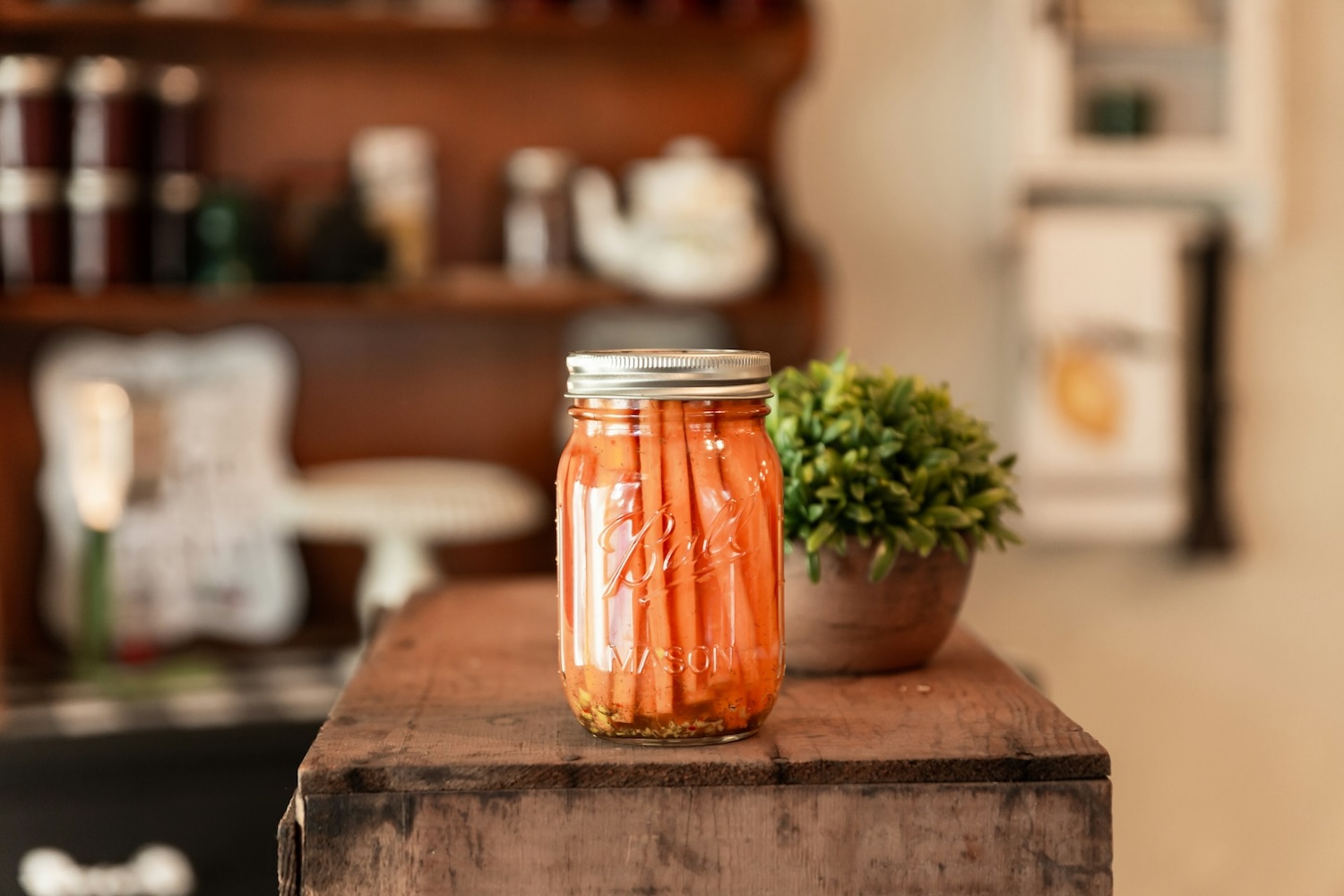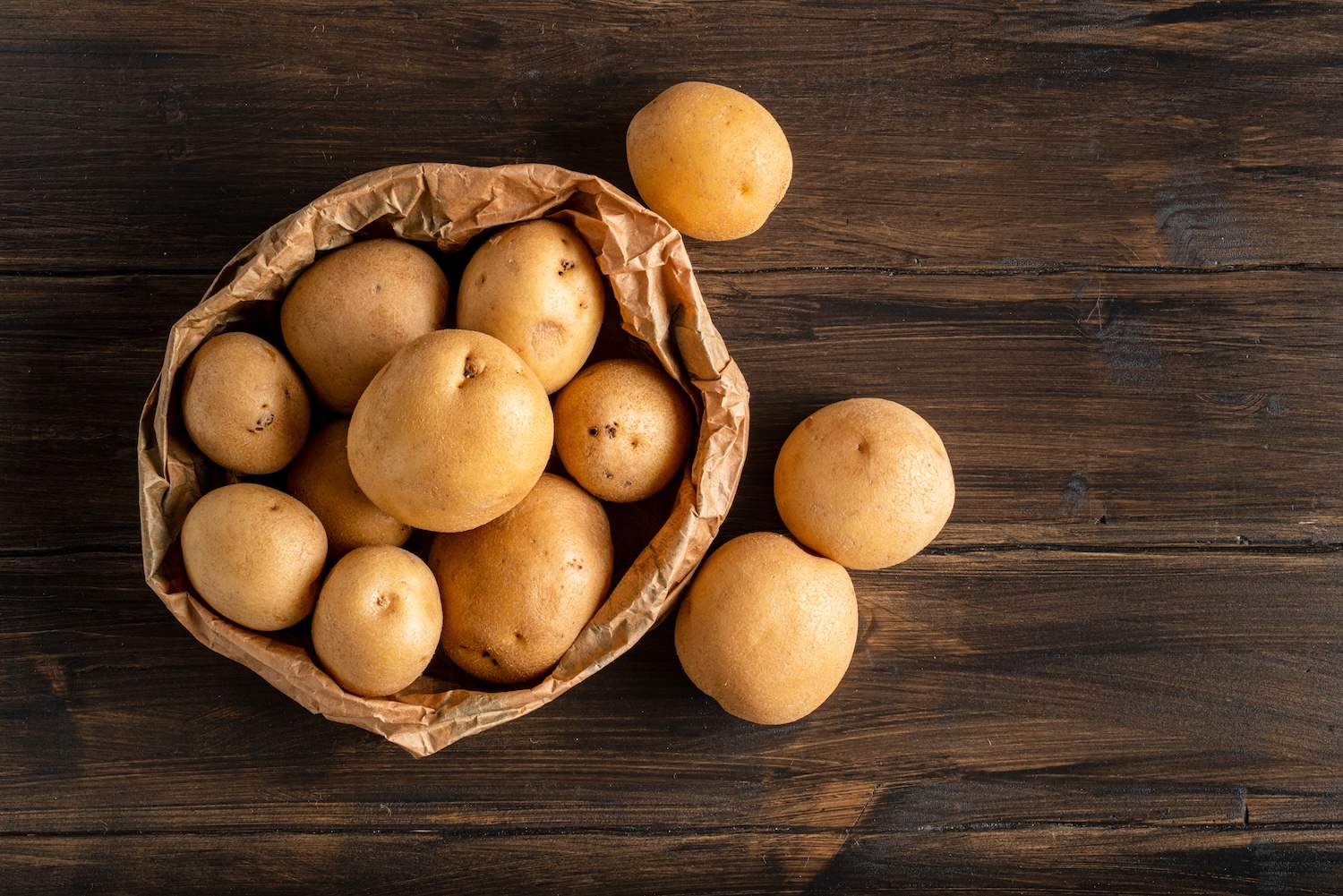
You're probably storing your fruits and vegetables wrong. It may sound like clickbait, but the truth is improper storage is the No. 1 reason your fresh fruits, vegetables and herbs are spoiling faster than you can use them. Learning how to store fruits and vegetables properly can extend their lives for days or even weeks, helping you to cut down on food waste, reduce your personal footprint and avoid tossing your hard-earned money in the trash.
As far as sustainable habits go, it's hard to get more low-lift than this one, as it's mostly about learning new things and making creative use of materials you already have to cut your waste down to size. We're breaking down the basics as part of our 2024 Sustainable Living Challenge.
How to store fruits and vegetables properly: The basics
Learning how to store fruits and vegetables properly boils down to two things: knowing which foods should go in the fridge, and keeping ethylene-producing foods and ethylene-sensitive foods away from each other.
That sounds complicated, but it's actually super simple. Some produce likes the fridge, while others prefer a cool, dark place. Ethylene, meanwhile, is a gas produced by some foods as they ripen that can cause other foods to ripen and spoil faster. Learn how to store fruits and vegetables like a pro by consulting our list, as well as this one-sheeter of ethylene-producing and -sensitive foods.

How to store fruits and vegetables: In the refrigerator
Carrots and celery. Learning how to store fruits and vegetables comes with curiosities, and celery and carrots are a prime example. If you plan to use your carrots and celery in a few days, they're fine kept in the crisper drawer of your refrigerator. But you can keep them crisp for way longer if you cut them up and store them in glass jars filled with water — this method also works for reviving forgotten celery or carrots that have already started to go soft.
Cucumbers. Cooks are split on the best place to store cucumbers: While their crisp texture lends them to being served cold — and the refrigerator can indeed extend their lives — cucumbers are prone to damage if left in too humid an environment. To prevent this, store cucumbers in a covered (but not airtight) container lined with a clean tea towel.
Peppers. From sweet bells to spicy serranos, peppers will last longer when stored in the fridge, but you also want to avoid excess humidity. The gurus at Martha Stewart's blog recommend storing bell peppers in a resealable plastic bag, while the chefs at Master Class suggest storing jalapeños and serranos in a paper bag, both in your fridge's crisper drawer. Both bag types can be reused time and again to reduce waste.
Cilantro, parsley and asparagus. Store cilantro and parsley like fresh flowers, trimming the bottom of the stems, placing them in a glass jar with a bit of water and putting them in your fridge. They will keep this way for about a week. To maximize freshness for up to a month, drape a reused plastic produce bag over the jar of herbs, making sure it's covered but not sealed. Surprisingly, asparagus is also best stored this way and will keep crisp for days longer.
Other fresh herbs like oregano, rosemary, thyme, sage, chives and mint. Wrap these fresh herbs in a damp tea towel inside a ziplock bag in your refrigerator. Check them frequently, removing any bits that are going off and re-moistening the towel as needed, and they'll keep for a week or longer. Basil is best left on the countertop (see below).
Green beans. It's a race against the clock with green beans. They love the cold, so get them in the fridge as soon as you get home from the grocery store or farmer's market. Keep them in the crisper drawer in an airtight container lined with a tea towel to avoid excess moisture.
Lettuce and leafy greens. Excess moisture is what causes greens to start wilting or go brown. Keep them dry by storing loose greens in an airtight container with tea towels on the top and bottom to maintain freshness for 10 days or more. Wrap whole heads of lettuce in clean tea towels and keep them in the crisper drawer for up to three weeks.
Eggplant. Treat these similar to lettuce, wrapping the whole eggplant in a tea towel and placing inside a covered (but not airtight) container.
Zucchini and summer squash. Keep these in a paper bag in your crisper drawer to prevent them going soft.
Broccoli, cauliflower, cabbage and Brussels sprouts. Store these items stem-side-up in a covered (but not airtight) container or a reused plastic bag. Make sure to maintain ventilation and avoid wrapping too tightly, and avoid storing these vegetables directly next to your fruits as they emit ethylene gas which can make fruits ripen faster.
Mushrooms. Mushrooms are sensitive to absorbing other flavors and becoming soft when exposed to too much moisture. Store in a paper bag and away from strong-smelling foods like takeout for best results.
Citrus fruits. Store your lemons, limes, oranges, grapefruits, and other citrus in mesh or paper bags in the crisper drawer of your fridge, and avoid cramming them together too tightly as this can cause them to mold.
Most other fruits. Other than those listed below, most fruit is best stored in the crisper drawer of your refrigerator and away from ethylene-producing vegetables. Some fruits, including apples, kiwis, mangoes, peaches and plums, also produce ethylene, so try to keep these separated from the rest of your produce to avoid faster ripening.

How to store fruits and vegetables: Outside the refrigerator
Tomatoes. Refrigerating tomatoes diminishes their flavor and can impart a mealy texture. Keep your tomatoes on the countertop out of direct sunlight, and avoid piling them on top of each other if you can as this can make them go moldy much faster.
Berries. This may also come as a surprise, but the humidity in your fridge can actually make berries develop that dreaded mold much faster. To keep your strawberries, blueberries, raspberries and blackberries fresh for longer, store them outside the fridge and do not wash them until they're ready to use.
Onions and garlic. Onions and garlic will last longest when kept in a cool, dark place. While a root cellar (or even a basement) isn't an option for everyone, you can mimic these conditions by keeping your onions in your pantry or inside a reused paper bag or cardboard box for low light and good ventilation. Keep onions and garlic away from potatoes, as they emit ethylene which will make the potatoes ripen faster.
Potatoes. While you want to keep your potatoes away from your onions and garlic, you'll store them the same way, creating that cool, dark place in a cupboard or with a paper bag or box.
Winter squash. These love a cool and dark place, too, so keep them in the cupboard or a paper bag or box, away from your onions and garlic.
Bananas. Keep your bananas on a hook or in a bowl on your countertop, away from your onions and garlic.
Basil. Do the same as your cilantro and parsley, putting in a jar with water and covering loosely with a reused produce bag, but leave it on your counter and out of direct sunlight.
Avocados. Keep your avocados on the counter so they ripen faster, but if you start to notice softness before you're ready to use them, go ahead and pop them in the fridge to extend their lives for a few more days.
Melon. Keep melon on the counter, away from direct sunlight, until you're ready to slice it, and store any leftover cut melon in an airtight container in the fridge to extend longevity.

Mary has reported on sustainability and social impact for over a decade and now serves as executive editor of TriplePundit. She is also the general manager of TriplePundit's Brand Studio, which has worked with dozens of organizations on sustainability storytelling, and VP of content for TriplePundit's parent company 3BL.














